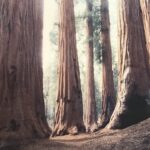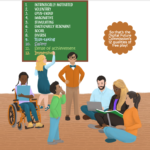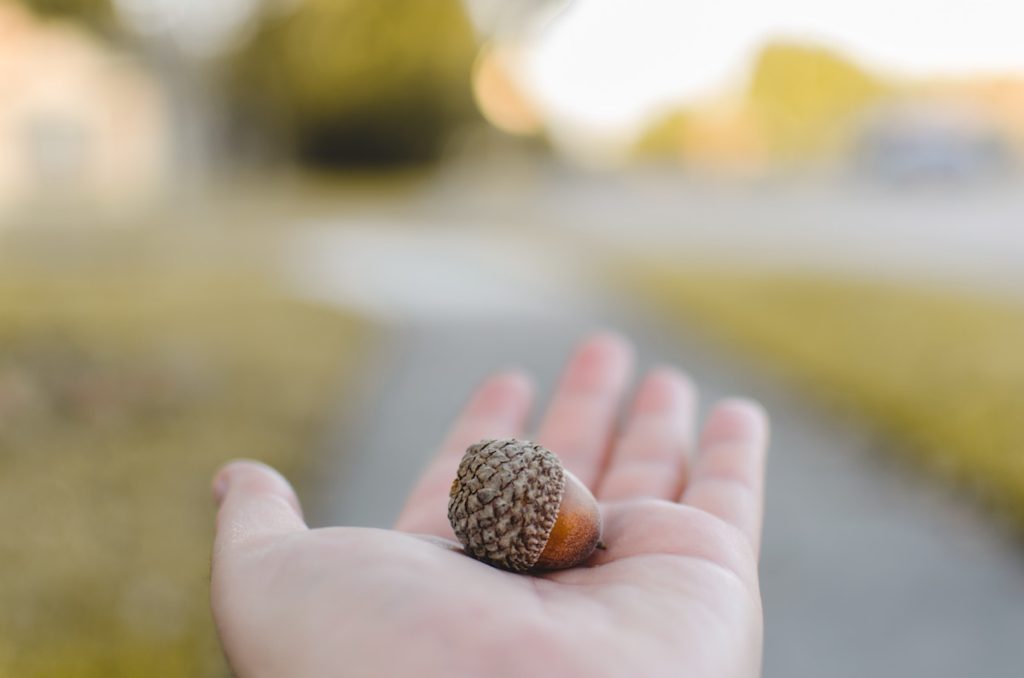
“Once upon a time, words began to vanish from the language of children. They disappeared so quietly that at first no one noticed — fading away like water on stone. The words were those that children used to name the natural world around them: acorn, adder, bluebell, bramble, conker — gone! Fern, heather, kingfisher, otter, raven, willow, wren…all of them gone! The words were becoming lost: no longer vivid in children’s voices, no longer alive in their stories.”
~Robert Macfarlane, from the lost words
In 2008, an observant mother of 4 in Ireland discovered some significant words had been deleted from the Oxford Junior Dictionary. She first noticed the words fern and moss were missing. She compared six editions from 1978 on and discovered that these nature words had been replaced with words that the Oxford University Press editors believed to be more pertinent for young readers.
Deleted: acorn, adder, ash, beech, bluebell, buttercup, catkin, conker, cowslip, cygnet, dandelion, fern, hazel, heather, heron, ivy, kingfisher, lark, mistletoe, moss, nectar, newt, otter, pasture, willow…
The OJD is a “starter dictionary” aimed at 7-year-olds. I first noticed the story on a blog called The Mary Sue that I read from time to time. Writer Margaret Atwood and 27 other writers wrote a letter to the Oxford University Press folks in January, 2015 pleading with the editors to reconsider.
The Mary Sue published the OJD editors’ response. I was especially struck by the words I have underlined in this screenshot.
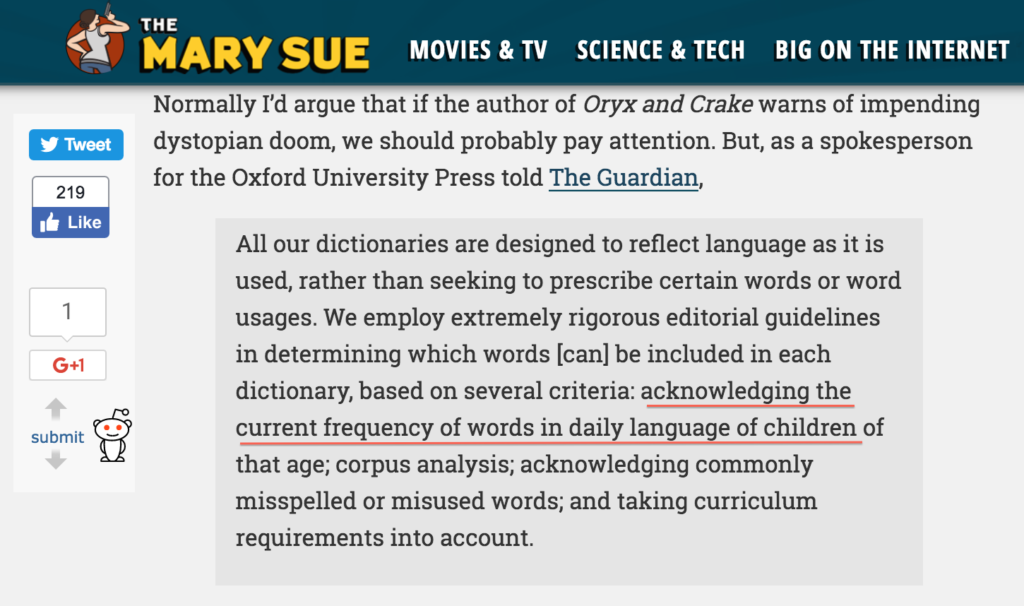
The current frequency of words in daily language of children.
Let’s just think about that for a minute. What is the frequency of these words in daily language in your home?The dialogue between the writers and the OJD editors clarified for me that the path through to well-being in our digital lives is a path of personal responsibility. I try to engage my communities in ways to restore these nature words to “frequency in the daily language…”
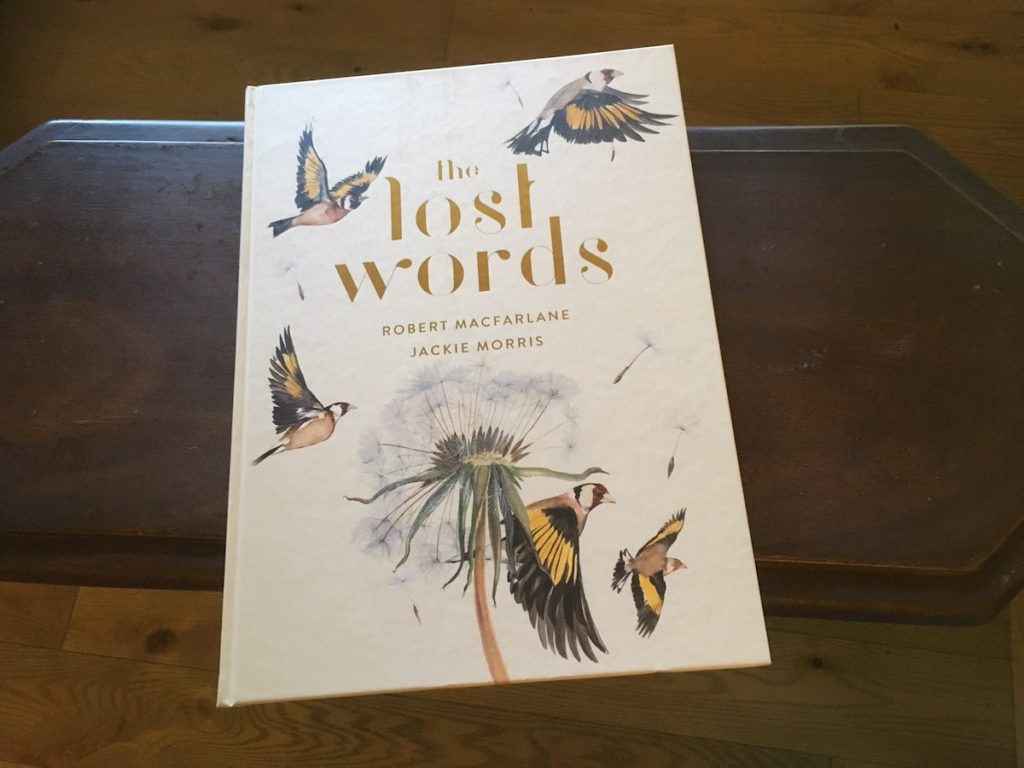
This is a remarkable book. When you open it to the title page, you see the subtitle—A Spell Book. The author writes: “You hold in your hands a spellbook for conjuring back these lost words. To read it, you will need to seek, find and speak. It deals in things that are missing and things that are hidden, in absences and appearances. It is told in gold — the gold of the goldfinches that flit through its pages in charms — and it holds not poems but spells of many kinds that might just, by the old, strong magic of being spoken aloud, unfold dreams and songs, and summon lost words back into the mouth and the mind’s eye.”
Artist Jackie Morris grew up in the Vale of Evesham in England, and lives in a cottage on the cliffs of Pembrokeshire, in Wales. Her illustrations, some covering the entire two-page spread, will touch you and your family and friends. You’ll find some free posters of the art here along with an Explorer’s Guide to The Lost Words, written by Eva John, “intended especially (but not only) for teachers and educators.”
Let’s work together to restore these words to frequency in the daily language of children.

